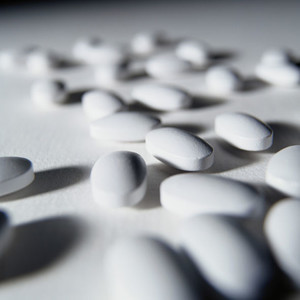The Fair Access Safety and Timely Generics Act has been reintroduced to congress, promising to save the US billions of dollars each year, while California has introduced a bill that would ban the use of coupons for prescription drugs where a cheaper alternative exists.
Many prescription drugs are prohibitively expensive across the US. Generics and biosimilars could help to reduce prices, but competitors are struggling to enter the market. Some US drugmakers have used the US Food and Drug Administration’s (FDA) Risk Evaluation and Mitigation Strategies programme, which is designed to ensure that the benefits of a drug outweigh its risks, to create ‘closed distribution networks’ and prevent potential competitors from gaining access to the samples they need to perform bioequivalency tests. These tests determine if a drug is interchangeable with the patent protected version and are essential for FDA approval.
In April 2017, congress proposed a bill to the House of Representatives that could prevent drug manufacturers from blocking generics and biosimilars competitors (akin to the Creating and Restoring Equal Access to Equivalent Samples (CREATES) Act of 2016 [1]). The bill, dubbed the ‘Fair Access Safety and Timely Generics Act’ or FAST Act, was first introduced in 2015 but did not make it passed US House Energy Subcommittee on Health on that occasion [2].
The Act could ease the pathway to market entry for more affordable, copycat drugs and save the US over US$5 billion every year, according to Premier, a healthcare improvement company that backed the bill. The legislation states that developers of generic and biosimilar drugs would require approval from the Department of Health and Human Services (HHS) to access samples of brand-name drugs, and could seek injunctive relief and even damages if they are unfairly denied access.
Mr Peter Welch, who was involved in the reintroduction of the Act, said it could save consumers billions by improving market competition and increasing access to more affordable treatment options. Despite its economic promise, the bill has unsurprisingly come under scrutiny from the pharmaceutical industry. Trade group Pharmaceutical Research and Manufacturers of America (PhRMA) said the bill could weaken FDA programmes and even lead to safety concerns.
In a parallel effort to reduce drug prices, a bill has been introduced in California that would ban pharmaceutical companies from issuing some prescription drug discounts to consumers. Coupons can make an important contribution to the cost of medications for patients, but some suggest that may in fact be leading to higher healthcare costs by encouraging patients to buy expensive, brand-name drugs when a cheaper option may be available.
Mr Jim Wood, who chairs the California Assembly Committee on Health and introduced the bill, suggests coupons are a marketing tool to push patients to more expensive drugs that may not be the most effective treatment for them and eventually result in an increase to their health insurance premiums. Indeed, the evidence suggests that coupons encourage patients to buy more expensive drugs even when cheaper options are available. According to a 2016 study, coupons increase sales of branded drugs by over 60%. Coupons are now available for over 700 drugs in the US and were responsible for US$7 billion in spending in 2015.
This bill would effectively make it a crime for drugmakers to offer reductions in out-of-pocket expenses, including rebates, vouchers, insurance co-payments and deductibles, if a cheaper alternative is available that is designated by FDA as interchangeable.
PhRMA has again opposed the measure, claiming that coupons help patients to access medicines at reduced prices and that the bill could prohibit patients’ access to medicines. Similarly, the California Life Sciences Association (CLSA) said that coupons increase the likelihood that a patient will follow their prescribed treatment, commenting that prescription non-compliance costs the healthcare system billions of dollars.
This is not the first time the issue of co-pay coupons has been raised in Congress and according to Wood a similar bill is pending in New Jersey, USA although he says this is just one of many efforts needed to reduce drug costs.
Related articles
Driving down drug prices: how regulators can influence affordability
References
1. GaBI Online - Generics and Biosimilars Initiative. New bill would stop brand-name pharma restricting drug samples [www.gabionline.net]. Mol, Belgium: Pro Pharma Communications International; [cited 2017 May 12]. Available from: www.gabionline.net/Policies-Legislation/New-bill-would-stop-brand-name-pharma-restricting-drug-samples
2. GaBI Online - Generics and Biosimilars Initiative. FAST generics act re-introduced to increase generics competition [www.gabionline.net]. Mol, Belgium: Pro Pharma Communications International; [cited 2017 May 12]. Available from: www.gabionline.net/Policies-Legislation/FAST-generics-act-re-introduced-to-increase-generics-competition
Permission granted to reproduce for personal and non-commercial use only. All other reproduction, copy or reprinting of all or part of any ‘Content’ found on this website is strictly prohibited without the prior consent of the publisher. Contact the publisher to obtain permission before redistributing.
Copyright – Unless otherwise stated all contents of this website are © 2017 Pro Pharma Communications International. All Rights Reserved.
Source: California Legislative Information; US Congress








 0
0











Post your comment